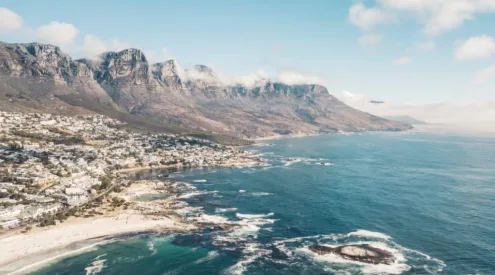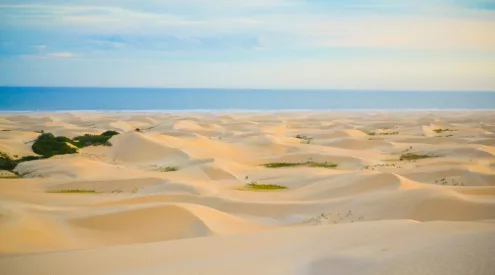A welcoming valley…
The general greenness of the Eastern Cape is rather welcoming after the traversing the stark summer landscape of the Western Cape for a couple of weeks. Our first stop was the lush agricultural Sundays River Valley in Addo. Once elephant territory, it is now a commercial citrus growing region home largely to conventional citrus farms.
Except, that is, for a group of pioneering organic farmers who have come together under one umbrella – the Sundays Organic Growers Association (SOGA). We stayed with the most seasoned of these farmers, Keith Finnemore, at Rosedale farm (where he also runs a lovely bed and breakfast spot with his wife, Miso). This committed cooperative of organic farmers is proving that going organic is not only better for the environment, but also makes good business sense.
… a friendly city…
From Addo, we drove to Port Elizabeth – the friendly city. And it certainly lived up to its name. Within a few hours of arriving a random trolley-gazing lady had dished us up a recipe for spinach tempura before relating her time in Japan – all in the queue at Pick ‘n Pay. By day four, we were bumping into people we ‘knew’! Port Elizabeth was a surprise package – from the food experiences (Two Fat Butchers, Guys of Design, Organic Footprints, Vovo Telos in Richmond Hill) to the community development projects (Nelson Mandela Bay Transition Network, Calabash Trust) to the truly stunning eclectic central city architecture. This is a little city with a good heart and great potential.
…and a wild coast
We then hit the road to Bulungula Lodge in the Transkei. Our arrival there was a bit rocky (and wet… see the blog about our drive in!) but the reward was extraordinary. An off-beat getaway spot with community empowerment project at its core, Bulungula Lodge is worth a visit – if only to try the Ilanga Fire restaurant’s pancakes! The lodge encourages an entrepreneurial spirit in the local community, which has resulted in the pancake restaurant run by two enterprising young women, Pinkie and Maina, as well as the fascinating Women Power tour which walks guests through a day in the life of a local woman. This basically consists of water and food sourcing and preparation (I would need a lot of training to be able to handle the maize grinding!). Then there’s the lemongrass farming project, and not to forget the huge and delicious loaves of Xhosa Solar Bread! A visit to the local shebeen is must, and if you’re lucky you’ll get to try the local beer.
Eco-tourism makes a difference
Like most of the places we’ve been so far, we could have spent a few more weeks in the Eastern Cape. The wild beauty is outstanding, and the people are pure. But the province is economically poor and there are many infrastructural and socio-economic issues that need some serious attention. We can all help just a little by putting the Eastern Cape on our holiday to-do lists. Eco-tourism done well has the potential to make a big difference, helping communities empower themselves while protecting nature and culture.
















